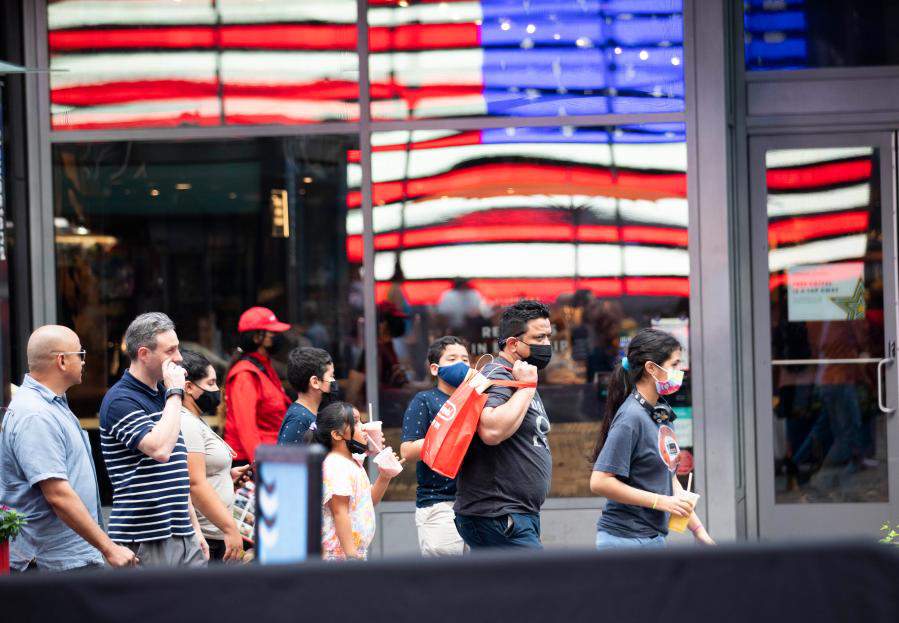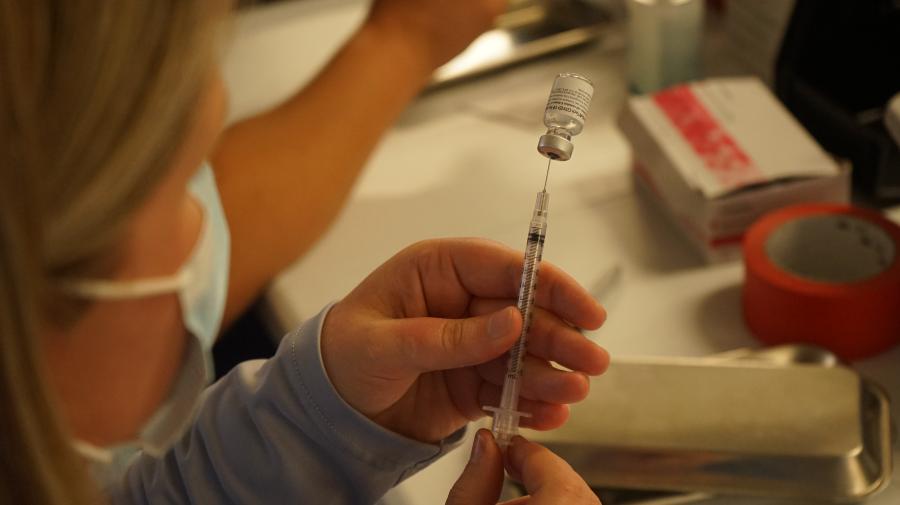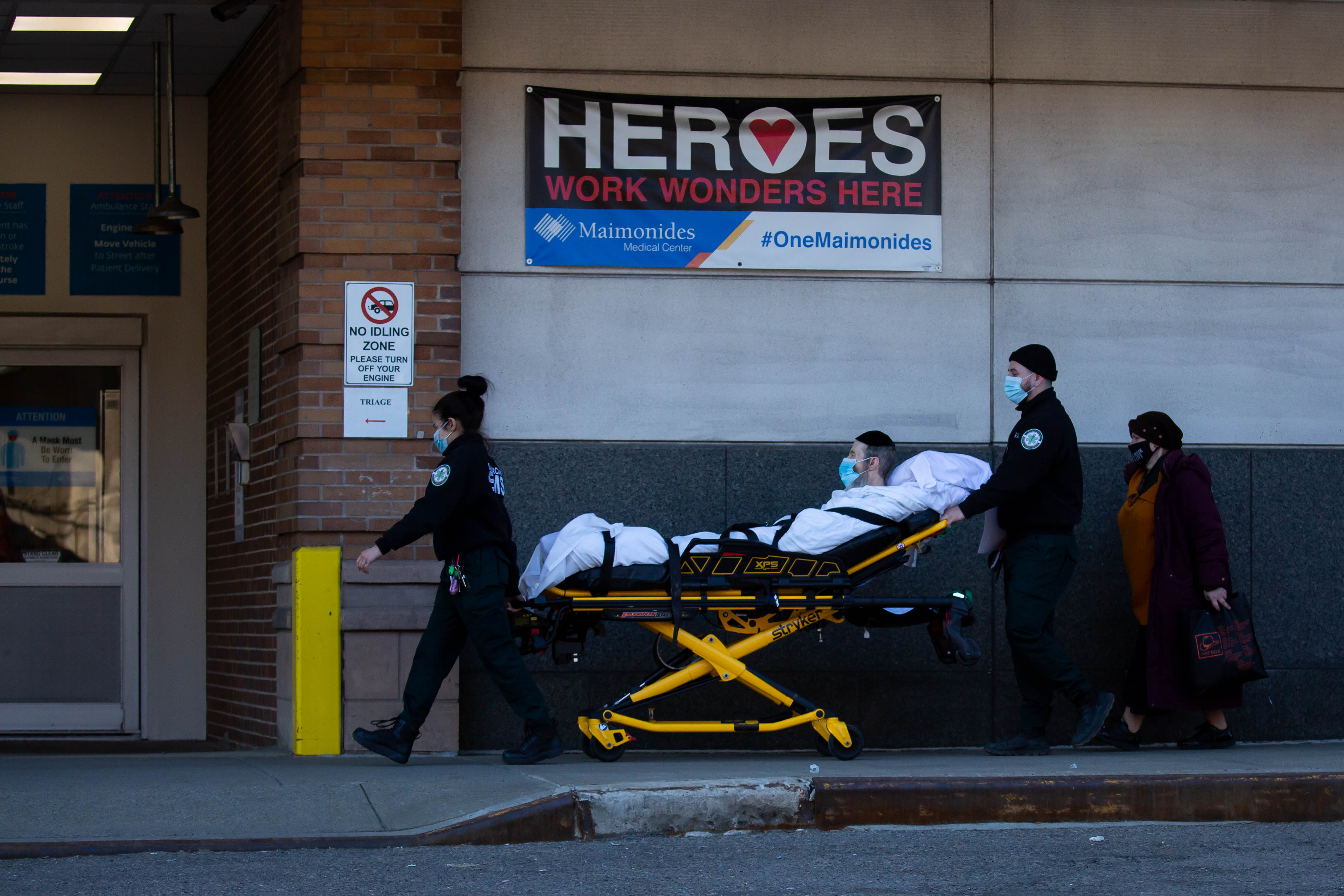Vaccine mandates become "sticky issue" as COVID-19 cases top 36 mln in U.S.

People walk in Times Square, New York, the United States, on July 20, 2021. (Xinhua/Wang Ying)
- The White House is ramping up its efforts to get Americans inoculated. This occurs as many Americans refuse the jab, mostly on worries that the side effects could be worse than the disease itself.
- As of Friday, 50 percent of the U.S. population -- about 165.9 million people -- had been fully vaccinated against the virus, according to the CDC.
WASHINGTON, Aug. 11 (Xinhua) -- Vaccine mandates are increasingly a sticky issue in the United States as the country's COVID-19 cases topped 36 million Tuesday, fueled by the unchecked spread of the Delta variant among under-vaccinated areas.
As of 6:21 pm on Tuesday local time (2221 GMT), the U.S. COVID-19 cases totaled 36,039,748, with 618,044 deaths, according to a Johns Hopkins University tally.
The U.S. cases currently account for almost 18 percent of the nearly 204 million global cases, while the country's COVID-19 deaths account for roughly 14 percent of the more than 4.3 million virus-related fatalities worldwide, showed the tally.
Anthony Fauci, head of the National Institute of Allergy and Infectious Diseases, has warned that U.S. COVID-19 cases may double to 200,000 a day in the fall unless the country could crush the outbreak "to the point of getting the overwhelming proportion of the population vaccinated."

A medical worker prepares a dose of COVID-19 vaccine at the Universal Studios Hollywood in Los Angeles, California, the United States, June 18, 2021. (Photo by Zeng Hui/Xinhua)
VACCINE MANDATES
While experts said a federal vaccine mandate is unlikely, states, cities and the nation's biggest firms are moving at a rapid clip to require the vaccine from employees, as the Delta variant spreads quickly across the country.
The Delta variant accounted for an estimated 93.4 percent of all new COVID-19 cases in the country during the last two weeks of July, showed the latest data from the U.S. Centers for Disease Control and Prevention (CDC).
Recent weeks have seen the U.S. state of California and New York City announce that public sector employees must get the jab or be required to submit to regular COVID tests.
Starting in mid-August, New York City's mayor will require patrons and customers at restaurants, gyms and bars to provide proof that they've been vaccinated. State employees in the U.S. state of Virginia are required to get vaccinated or submit to weekly testing.
Pennsylvania Governor Tom Wolf on Tuesday announced that commonwealth employees in state health care facilities and high-risk congregate care facilities will be required to be fully vaccinated against COVID-19 by Sept. 7. Individuals who are not vaccinated will be required to undergo weekly COVID-19 testing, according to the governor's website.
"As a leading employer in Pennsylvania, the commonwealth must stand up and provide an example for other businesses to follow," said Wolf.
State of Washington Governor Jay Inslee on Monday announced a vaccine mandate for most state workers, as well as contractors and volunteers. Private health care workers will also have to get the jab, as a condition of employment.
"We have a duty to protect them from the virus," Inslee said.
Companies for months were reluctant to put vaccine mandates in place, on fears of political and legal backlash, but recent days and weeks have seen some of the nation's largest firms require the jab.
Both Walmart and Walt Disney Company have implemented new requirements that some employees get the vaccine -- moves that come on the heels of similar mandates from Uber, Facebook and Google.
The White House is ramping up its efforts to get Americans inoculated. President Joe Biden has announced that federal workers need to get the jab or else be forced to wear masks and maintain social distancing in the workplace.
This occurs as many Americans refuse the jab, mostly on worries that the side effects could be worse than the disease itself.
As of Friday, 50 percent of the U.S. population -- about 165.9 million people -- had been fully vaccinated against the virus, according to the CDC.

Tourists are seen near the White House in Washington, D.C., the United States, July 26, 2021. (Xinhua/Liu Jie)
MOUNTING LAWSUITS
Clay Ramsay, a researcher at the Center for International and Security Studies at the University of Maryland, told Xinhua there is no precedent for a federal vaccine mandate, but added that "this kind of public health power has a long heritage at the state level."
Brookings Institution Senior Fellow Darrell West told Xinhua: "Individual public and private sector organizations can require vaccinations," but added that a federal vaccine mandate "probably would not be legal."
It remains unknown whether the White House will use federal regulatory power, or threaten to withhold funds to certain entities whose employees are not getting inoculated. But that could backfire politically in the lead-up to next year's midterm Congressional elections.
Christopher Galdieri, assistant professor at Saint Anselm College, told Xinhua that the federal government tends not to do general, nationwide vaccine mandates, "and the Biden administration doesn't seem interested in pushing one."
Fauci, the nation's top infectious diseases expert, said Tuesday that he backs local mandates for teachers to get vaccinated.
"I'm going to upset people on this, but I think we should (mandate teacher vaccinations)," he told news outlet MSNBC. "I mean, we are in a critical situation now."
Children made up 15 percent of the reported weekly COVID-19 cases in the United States for the week ending Aug. 5, according to a recent report by the American Academy of Pediatrics (AAP).
However, vaccine mandates have created a number of sticky legal situations nationwide.
Plaintiffs are asking the U.S. Supreme Court to block a vaccine mandate for students at Indiana University, marking the first time the highest court in the nation being asked to rule on the issue.
Students have also filed lawsuits against vaccine mandates in the U.S. states of Indiana, Connecticut, Massachusetts and California, and the lawsuits claim universities are violating students' constitutional rights over their own bodies.
Todd Zywicki, a law professor at George Mason University, in the DC area, has filed a lawsuit against the university over what he calls an "unlawful mandate" that is "unmistakably coercive."

Medical workers wheel a patient into the emergency room at Maimonides Medical Center in the Brooklyn borough of New York, United States, March 8, 2021. (Xinhua/Michael Nagle)
At the same time, firefighters unions, healthcare workers and public employees nationwide have staged protests in recent weeks.
Healthcare workers in the U.S. state of Minnesota recently demonstrated against vaccine mandates. A police union in San Francisco, in the state of California, warned that officers will retire or quit if forced to get inoculated.
On Tuesday, protesters gathered in New York City to rally against the city's upcoming mandate, which requires proof of vaccine for those wishing to dine indoors, attend performances and frequent gyms.
U.S. media reported that demonstrators held placards and chanted "we will not comply."
Republican Sens. Ted Cruz and Kevin Cramer earlier this week pushed legislation to forbid vaccine mandates, but passage is seen as a long shot.
Florida Governor Ron DeSantis, whose state is now a new COVID-19 epicenter, has announced that the state Board of Education could withhold pay from school leaders who implement mask mandates for students.
However, several school districts are considering mask mandates and a few have said masks will be required, with some opt-out exceptions.
DeSantis traded barbs with Biden last week when the Democratic president criticized him and other Republican governors for banning mask mandates in public schools and other places.
Deborah Coleman, a retired nurse in the state of Delaware, in her 60s, told Xinhua that "health care professionals should only consider mandates after full FDA approval."
Pfizer's vaccine is only authorized for emergency use in the United States, but full approval could come from the U.S. Food and Drug Administration (FDA) within weeks.
Experts and U.S. media surmise that full FDA approval could prompt more Americans to get the jab.
Photos
Related Stories
- Cuban FM lauds China's contribution to anti-COVID-19 fight
- Chinese mainland reports 83 new locally transmitted COVID-19 cases
- Bangladesh receives Chinese COVID-19 vaccines through COVAX facility
- Interview: Africa expects upcoming FOCAC meeting to help realize new public health order: Africa CDC official
- Intelligence probe of COVID-19 origins unlikely to end with high-confidence result: officials
Copyright © 2021 People's Daily Online. All Rights Reserved.










